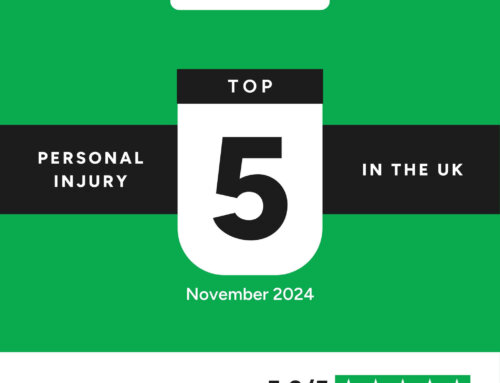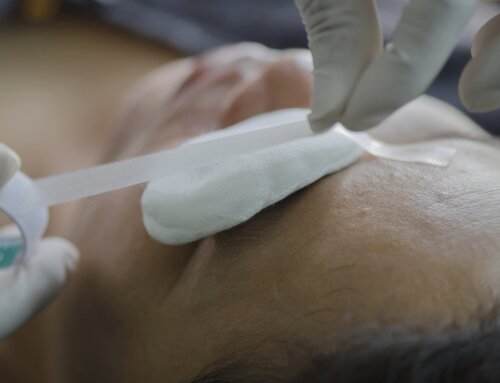This article was last updated in December 2023.
If ‘my home is my castle’, then my workplace should be next on the list of safe havens. Under common law, employees have a right to expect their employer to:
- take care of their safety,
- see to it they do not get exposed to undue risks,
- ensure that they have a safe system of work.
Most employers do their best to provide a secure working environment for those who work for them. However, accidents at work still happen when they shouldn’t. It ought to be unthinkable that you could get assaulted at work, but the danger is real.
Workers do suffer assaults and are attacked at work, whether by colleagues, members of the public or someone who is under the care and protection of the employee as part of the latter’s work, e.g., a prison offer assaulted by an inmate, a schoolteacher who gets attacked by a pupil, or a care worker who suffers injury from an attack on them by the person in their care.
Assaulted at work – facts and figures
There were 688,000 reported incidents of violence at work in the year 2019/2020. Of this figure, 389,000 incidents were threats of violence. The remaining 299,000 were physical attacks. The perpetrators of violence are both work colleagues and members of the public.
Who is most at risk of an assault at work?
Anyone in any job is at some risk of assault at work, whether from a work colleague or another person.
Workers in certain occupations are at greater risk of being the victims of assault from members of the public.
Occupations that carry a higher-than-average risk of assault from a member of the public include:
- Police officers.
- Prison warders.
- Pub and nightclub doormen.
- Security guards.
- Social workers.
- Teachers.
- Care workers.
- Public Transport staff.
- Doctors and nurses in A&E departments or on the ward.
- Emergency workers: paramedics, on-call doctors, and firefighters.
- Hotel workers.
- Shopworkers.
- Waiters and café/restaurant staff.
- Traffic enforcement officers.
- Debt collectors.
The list is not exhaustive. The reality is that anyone who works with the public is at risk of assault. In some occupations, that risk is higher than it is in others.
What is meant by the term ‘assault at work’?
The Health and Safety Executive (HSE) booklet, ‘Violence at Work – A Guide for Employers’, defines work-related violence as:
‘any incident in which a person is abused, threatened, or assaulted in circumstances relating to their work.’
Verbal abuse comes within the definition of work-related violence. Threatening or abusive words do not cause physical injuries. Yet they can cause the victim to suffer a psychological injury. That is even more the case, if the threats continue over a prolonged period.
What should employers do to protect employees from the risk of assaults at work?
There are laws setting out the steps employers must take to protect employees from work-related violence. There are two main Acts of Parliament governing violence and assaults in the workplace.
- The Health and Safety at Work Act etc 1974 (HASAW), which requires employers to:
- Ensure they protect the health and wellbeing of employees, ‘so far as is reasonably practicable.’
- The Management of Health and Safety Regulations 1999 requires employers to:
- Carry out a risk assessment of the significance and likelihood of any risk (including incidents of workplace violence).
- Having assessed the risks, the employer must decide how to manage those identified. Then they must set out plans to deal with the potential hazards.
- Consult with employees on matters relating to health and safety at work. This includes advising them of the outcome of risk assessments.
- Ensure employees know their duty to adhere to company policies relating to workplace violence.
Can I make a claim against my employer for a workplace assault?
If you are injured because of an assault at work, you have the right to claim bring a claim against your employer. This would be a personal injury claim.
Whether your claim has reasonable prospects of success, depends on whether the attack on you was ‘foreseeable’.
Lawyers often use the phrase ‘reasonably foreseeable’. In cases of workplace assault, the question they ask is whether it was reasonably foreseeable that an assault was likely to happen.
For example:
- Have there been any previous assaults on colleagues?
- If there were previous assaults, how did your employer react to them?
- Did your employer use those incidents as a warning to take measures to try and prevent further assaults?
If your employer did nothing in response to the attacks on you, then an assault at work claim may succeed.
If you are the victim of an assault at work, and your employer has breached their duty of care to you by failing to take any of the steps outlined (including carrying out a risk assessment), you may have reasonable prospects of bringing a successful assault at work compensation claim against your employer.
Other circumstances that may entitle you to claim against your employer after an assault at work include:
- Where staffing levels become low, and an employer fails to rectify the situation in response, e.g., prison service, emergency services, schools, hospitals, care homes.
- Lack of suitable training – occupations where employees deal with vulnerable or unstable individuals.
- Failing to provide personal protective equipment such as suitable clothing, equipment, barriers/screens.
How do I claim compensation for an ‘assault at work’?
If you are considering bringing an assault at work claim against your employer, seek legal advice. Make sure that you talk with an experienced assault at work solicitor.
The law relating to assault at work claims and other accident at work claims is similar. However, assault in the workplace claims are often some of the more complex types of claims to pursue. In effect, you are claiming that your employer was to blame for the deliberate act of another person. That person may or may not be a colleague.
Mooneerams are specialist personal injury solicitors. We only deal with claims on behalf of claimants. That means we act for those who seek access to justice to claim compensation and to put right, a wrong.
We do not act for insurance companies or employers.
Mooneerams are a niche firm; we only deal with personal injury cases. As a result of many years of dealing with assault at work claims, we have become experts.
Watch Our Video: What Are Your Rights If You’re Assaulted At Work?
No Win No Fee Assault at Work Claims Solicitors
We handle most assault at work claims for our clients on a No Win No Fee agreement basis. If you have the benefit of a No Win No Fee agreement it means, that:
- If you lose your claim, you will have nothing to pay.
- If you win your claim, you will have nothing to pay to the other side (your employer’s insurance company). You will pay us a fee. The amount you pay us will be a proportion of the amount of compensation you receive upon winning the claim. We will agree the way the fee gets calculated before you sign any agreements with us.
No Win No Fee claims are popular. They remove any fears that clients have about having to pay legal fees if they lose their case. This enables claimants to concentrate on pursuing their assault at work claims.
How do I contact Mooneerams solicitors?
Call Mooneerams now on 029 2048 3615.
You can also contact us by clicking on the link here. Please leave your details for us to call you back at a time that is most convenient to you.
When you call us, we will go through the details of your potential claim with you. Our experienced personal injury expert will give you friendly, expert advice and guidance. They will assess the prospects of your making a successful assault at work injury claim.
If we believe your claim has reasonable prospects, we will be happy to take on your claim. Our legal experts will not put any pressure on you. You are free to use any solicitor of your choice. We hope you will choose Mooneerams.
There is a time limit for bringing accident at work claims including those involving violent in the workplace. The usual time limit is three years from the date of the incident. However, there are exceptions to this rule, so you should ask a solicitor how much time you have to bring a claim in your particular case.
Mooneerams Solicitors offices are in Cardiff. We have satellite offices in Aberdare, Bridgend, Cardiff Bay, Caerphilly, Merthyr Tydfil, Pontypridd and Swansea.











